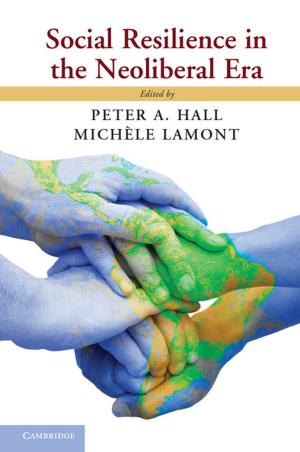Imperialism, Sovereignty and the Making of International Law
Nonfiction, Reference & Language, Law, International, Social & Cultural Studies, Political Science| Author: | Antony Anghie | ISBN: | 9781139931120 |
| Publisher: | Cambridge University Press | Publication: | February 3, 2005 |
| Imprint: | Cambridge University Press | Language: | English |
| Author: | Antony Anghie |
| ISBN: | 9781139931120 |
| Publisher: | Cambridge University Press |
| Publication: | February 3, 2005 |
| Imprint: | Cambridge University Press |
| Language: | English |
This book argues that the colonial confrontation was central to the formation of international law and, in particular, its founding concept, sovereignty. Traditional histories of the discipline present colonialism and non-European peoples as peripheral concerns. By contrast, Anghie argues that international law has always been animated by the 'civilizing mission' - the project of governing non-European peoples, and that the economic exploitation and cultural subordination that resulted were constitutively significant for the discipline. In developing these arguments, the book examines different phases of the colonial encounter, ranging from the sixteenth century to the League of Nations period and the current 'war on terror'. Anghie provides a new approach to the history of international law, illuminating the enduring imperial character of the discipline and its continuing importance for peoples of the Third World. This book will be of interest to students of international law and relations, history, post-colonial studies and development studies.
This book argues that the colonial confrontation was central to the formation of international law and, in particular, its founding concept, sovereignty. Traditional histories of the discipline present colonialism and non-European peoples as peripheral concerns. By contrast, Anghie argues that international law has always been animated by the 'civilizing mission' - the project of governing non-European peoples, and that the economic exploitation and cultural subordination that resulted were constitutively significant for the discipline. In developing these arguments, the book examines different phases of the colonial encounter, ranging from the sixteenth century to the League of Nations period and the current 'war on terror'. Anghie provides a new approach to the history of international law, illuminating the enduring imperial character of the discipline and its continuing importance for peoples of the Third World. This book will be of interest to students of international law and relations, history, post-colonial studies and development studies.















